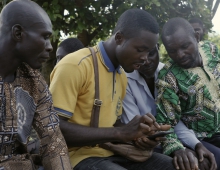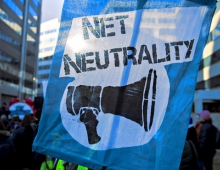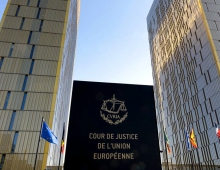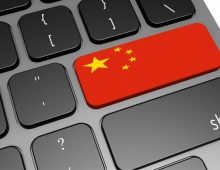
Governments Resume key Talks on Control of the Internet
About 170 countries kicked off a final round of negotiations on the controversial issue of control of the Internet and the core technical infrastructure that allows it to operate seamlessly worldwide.
The issue, which has been under discussion for at least three years, is broadly pitting the United States against other countries that want to reduce Washington's potential to control the global public computer network.
The preparatory talks attracted more negotiators than expected, and are likely to carry on through the three-day World Summit for the Information Society beginning on Wednesday, said Sarah Parkes, a spokeswoman for the organisers, the UN's International Telecommunications Union.
After a general meeting, the countries were due to break up into working groups of about 40 countries on Monday in an attempt to reach agreement during the summit.
The technical management of the Internet is currently overseen by the US-based International Corporation for Assigned Names and Numbers (ICANN), which allocates and manages the country domain names (.cn, .uk) as well as the technical roots that underpin the global network.
Although independent and widely acknowledged to be run by a free-spirited group of Internet enthusiasts, ICANN is attributed the role by tender from the US government.
The United States says it wants to continue that role, arguing the need to maintain the technical stability of the system and stop management falling into the hands of governments that are less keen on freedom of speech.
However, Washington is largely isolated, with most countries, including the European Union, seeking to introduce some kind of international oversight now that the importance of the Internet has grown.
UN Secretary General Kofi Annan is due to attend the summit beginning on Wednesday, along with about 20 other government leaders.
The summit is mainly aimed at driving forward attempts to allow poor countries to harness the economic and social benefits of the Internet and modern telecommunications.
The preparatory talks attracted more negotiators than expected, and are likely to carry on through the three-day World Summit for the Information Society beginning on Wednesday, said Sarah Parkes, a spokeswoman for the organisers, the UN's International Telecommunications Union.
After a general meeting, the countries were due to break up into working groups of about 40 countries on Monday in an attempt to reach agreement during the summit.
The technical management of the Internet is currently overseen by the US-based International Corporation for Assigned Names and Numbers (ICANN), which allocates and manages the country domain names (.cn, .uk) as well as the technical roots that underpin the global network.
Although independent and widely acknowledged to be run by a free-spirited group of Internet enthusiasts, ICANN is attributed the role by tender from the US government.
The United States says it wants to continue that role, arguing the need to maintain the technical stability of the system and stop management falling into the hands of governments that are less keen on freedom of speech.
However, Washington is largely isolated, with most countries, including the European Union, seeking to introduce some kind of international oversight now that the importance of the Internet has grown.
UN Secretary General Kofi Annan is due to attend the summit beginning on Wednesday, along with about 20 other government leaders.
The summit is mainly aimed at driving forward attempts to allow poor countries to harness the economic and social benefits of the Internet and modern telecommunications.





















